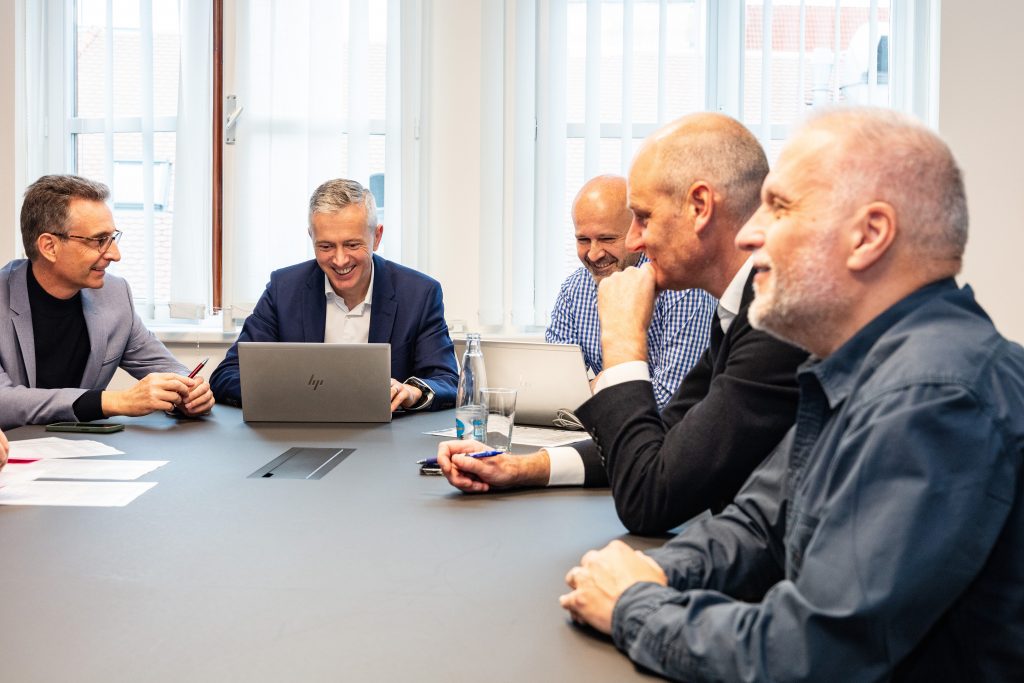I was looking for an investor who keeps and develops companies, says InfoTel founder about the merger with VINCI Energies
At the end of October, the VINCI Energies group made one of the most significant acquisitions in the Czech Republic in recent years - it took control of InfoTel in Brno. Its founder, Pavel Košt'ál, explains why he chose VINCI Energies and how he sees the future of the company he founded in 1992.
What is the core of InfoTel’s business?
It is services related to the construction and operation of telecommunications networks. We do not own the networks, nor do we sell the end service. We do the in-between. We identify where networks can be built, design them, arrange everything administratively, build the networks, and then take care of their operation.
This is also the case with your biggest client, Vodafone, for whom you manage the former UPC network?
Yes, today there are six hundred thousand clients and 1.5 million households in this network. In short, everything that UPC had in the Czech Republic. But we also cooperate with T-mobile, for example. At the moment, I dare say that we are key to the operation of the network. This did not come about by itself, but it took us twenty years to build this position.
InfoTel has 15 offices around the country, including one in Germany.
We have a head office in Brno, which handles design and construction. We have separate offices around the country to service the network. The German branch is specific, focusing mainly on mobile networks. At the same time, this is one of the big opportunities for VINCI Energies in terms of using our know-how in Germany and in the fixed network sector. And then possibly transfer it to other countries.
Why did you decide to offer InfoTel for sale after more than 30 years?
In 1992 we founded the company in four, since 2005 I have had it on my own. I would have been happy if I could have passed the company on to one of my two children, I even persuaded my son to do so, but he decided to take a different path. There are many successful entrepreneurs in my generation who failed to pass the company on to their children and so they closed it down or still have to work in it. A good friend of mine is a 1946 vintage and still working. He may have a capable CEO, but when there is a problem, people still call him. I didn’t want to go that route.
Why did you choose VINCI Energies?
I knew I didn’t want to sell the company to a financial investor who would polish it and sell it. I was looking for a strategic partner who would hold on to their acquisitions, keep them and grow them. And I think VINCI Energies has that philosophy. It was important to me that the new owner let the company live, that the people who work here continue to work in a similar environment and culture.

How would you describe the culture of InfoTel?
We have a lot of pressure on productivity, which is perhaps why this acquisition was interesting for VINCI Energies. Our success is not based on having higher prices than the rest of the market. Our company culture is linked to that. We can’t physically control most of our workers, we can’t tell if they’re going to do a service job on a customer in ten or fifty minutes. But we can teach them that if the company makes a profit, they will do well too. That the interest of the employee and the employer is the same.
How do you think InfoTel fits into VINCI Energies’ portfolio of activities?
VINCI Energies can look for synergies in the processes we have here and translate them into the Czech market. We do networks for telecommunications, other companies in the group for energy. In principle, it’s the same work with the same difficulty, including the fact that you build and operate networks almost always on
assets that you don’t own. VINCI Energies can take this experience and apply it to other sectors or other countries where the group operates.
How much is InfoTel today tied to you personally?
I knew there would come a day when I would have nothing to give to the company. And everything I did was geared towards bringing up an independent and quality management and at the same time bringing in an owner who would let the company develop. InfoTel today has projects that I know exist and have good results. But which cities we are building in now, I have no idea. The company has activities today that are not in my hands, but in the hands of the management I brought up.

